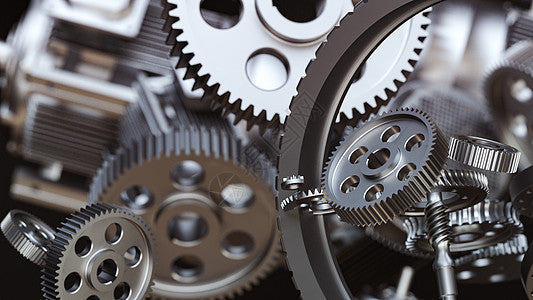Introduction:
Tractor hydraulic systems are integral to the functionality of modern agricultural machinery, and the hydraulic pump is at the heart of these systems. In this blog post, we'll explore the importance of tractor hydraulic pump maintenance, common issues that arise, and essential techniques for keeping your hydraulic system in optimal condition.
- Understanding the Importance of Hydraulic Pump Maintenance:
The hydraulic pump is responsible for generating the hydraulic pressure needed to operate various components of the tractor, such as the lift arms, steering system, and implements. Regular maintenance of the hydraulic pump is essential to ensure smooth operation, prevent breakdowns, and prolong the lifespan of the tractor.
- Common Issues and Symptoms:
a. Fluid Leaks: Hydraulic fluid leaks are a common issue that can occur due to worn seals, damaged hoses, or loose fittings. Inspect the hydraulic system regularly for any signs of leaks, such as puddles of fluid underneath the tractor.
b. Loss of Pressure: A loss of hydraulic pressure can result from a variety of factors, including air in the system, worn pump components, or contaminated fluid. Monitor the hydraulic pressure gauge and address any fluctuations promptly.
c. Unusual Noises: Strange noises, such as whining or grinding, may indicate problems with the hydraulic pump or other components of the system. Investigate any unusual sounds and take corrective action as needed.
- Essential Maintenance Techniques:
a. Regular Inspections: Conduct thorough inspections of the hydraulic system, including the pump, hoses, fittings, and reservoir, to identify any signs of wear or damage.
b. Fluid Checks and Changes: Monitor the hydraulic fluid level and condition regularly, and replace the fluid according to the manufacturer's recommendations to prevent contamination and maintain proper lubrication.
c. Filter Replacement: Replace hydraulic filters at regular intervals to prevent contaminants from entering the system and causing damage to pump components.
d. Seal and O-Ring Maintenance: Inspect seals and O-rings for signs of wear or damage, and replace them as needed to prevent fluid leaks and maintain hydraulic pressure.
- Professional Assistance:
While many aspects of hydraulic pump maintenance can be performed by tractor owners or operators, some tasks may require the expertise of a professional mechanic or technician. Don't hesitate to seek assistance if you encounter complex issues or lack the necessary tools or knowledge to perform repairs safely.
Conclusion:
Effective maintenance of the tractor hydraulic pump is essential for ensuring the reliable operation of agricultural machinery. By understanding common issues, implementing regular maintenance routines, and addressing problems promptly, tractor owners can minimize downtime, reduce repair costs, and maximize productivity in the field.
By incorporating these tips and techniques into your tractor maintenance routine, you can keep your hydraulic system running smoothly and efficiently for years to come.

